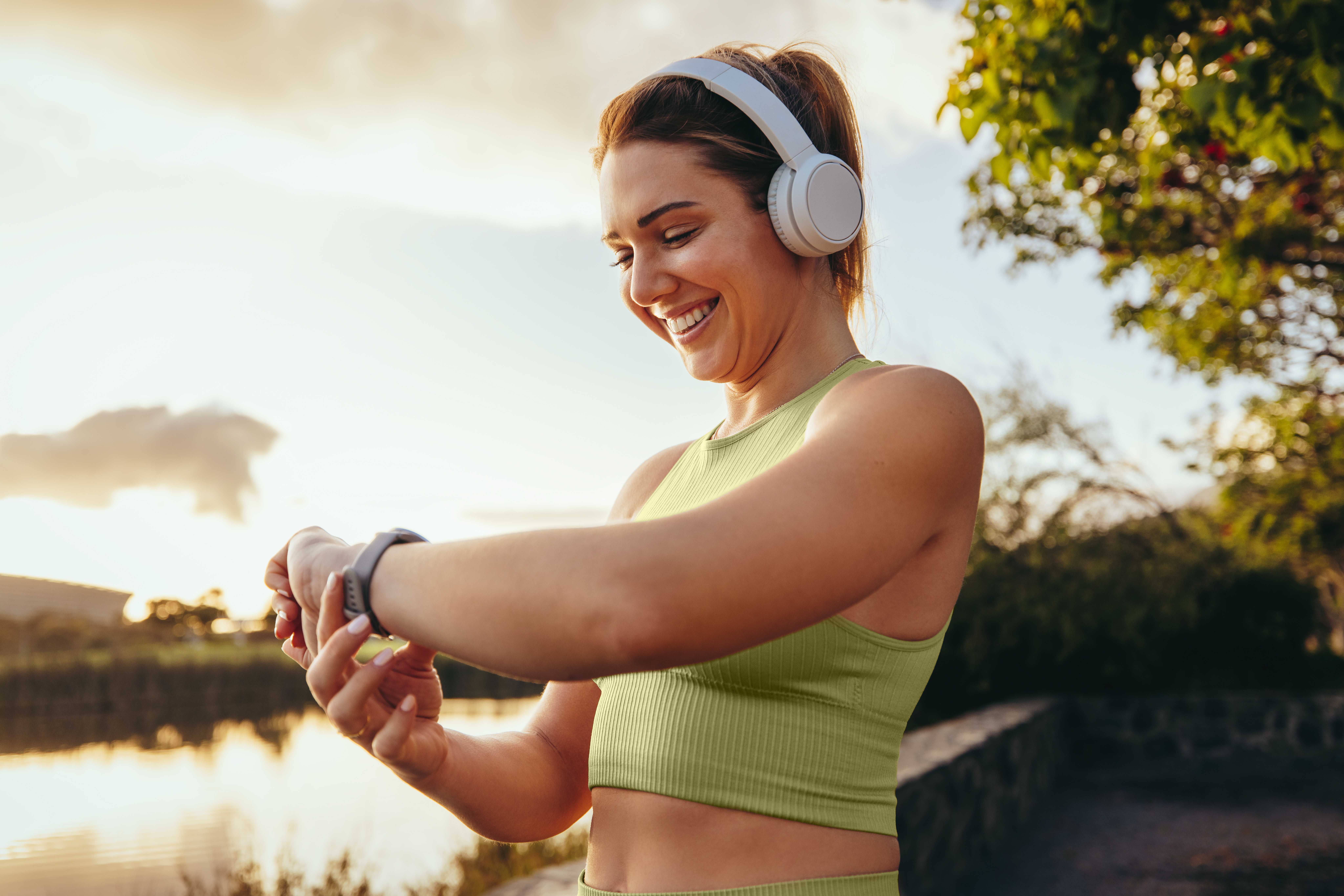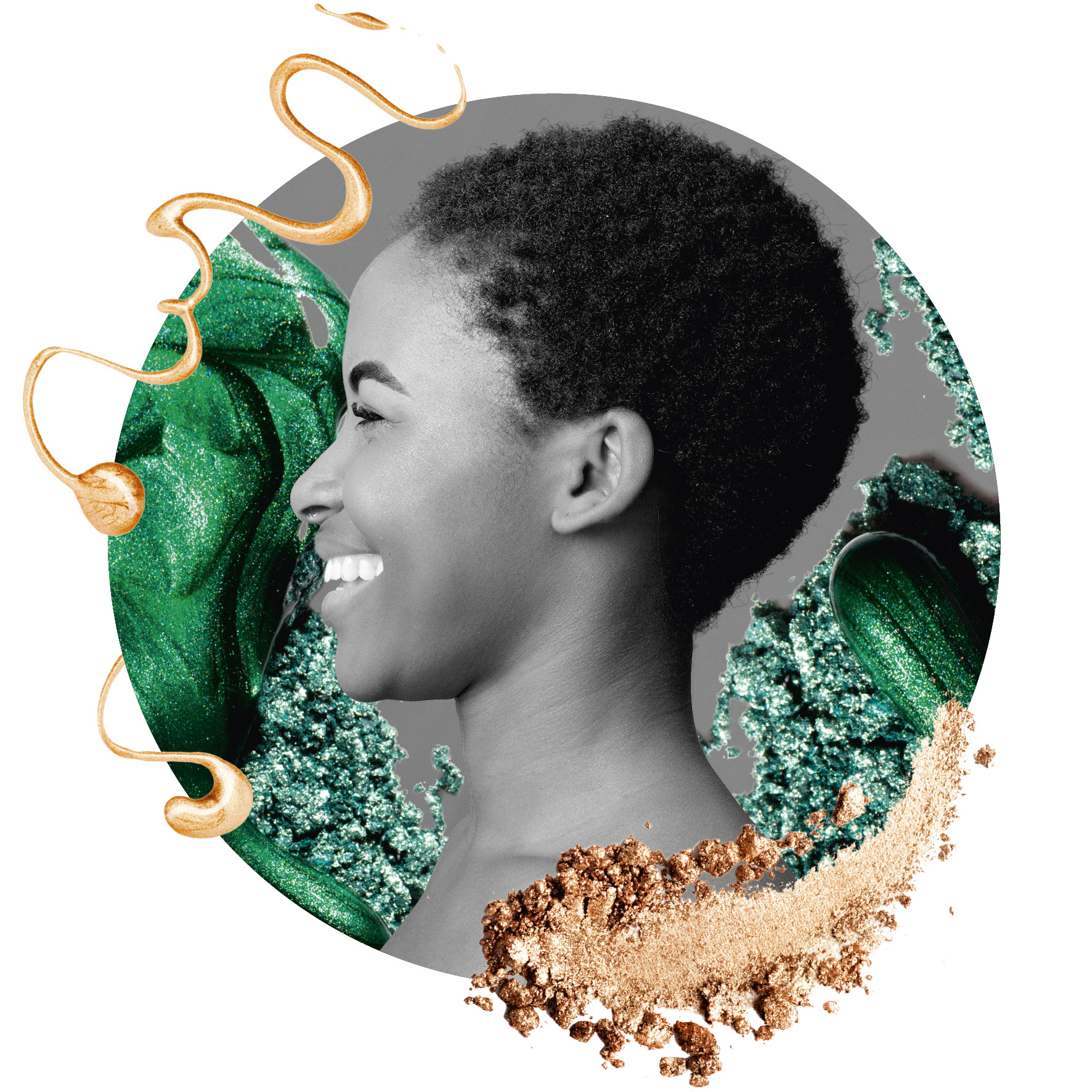If you’re at all interested in wellbeing and health, you’ve probably been exposed to social media influencers promoting various ways you can track aspects of your health. Whether it’s an app to track your sleep; a ring or watch to track your heart rate, temperature, movement and more; a diet diary or a fitness tracker, we live in an information age when it comes to health.
So-called ‘biohackers’ are measuring every possible aspect of their bodies with the aim of cheating death (or at least gaining a few more years). And there’s a ton of marketers with products to sell, all aimed at helping us monitor and track our health. So, what’s worth monitoring and what’s too much information? Are there trackers that are health-enhancing tools? And what aspects of our health should we be keeping an eye on?
Why Track?
“Some people are fascinated by data,” says dietitian Kate Ellison, who’s aware some of us are glued to our health tracking devices. “They absolutely love to know what’s going on 24-7.”
The question she and other health experts ask is how we’re interpreting all that data.
“I think probably in some cases it feels a little bit arbitrary,” Kate notes. “I think whatever you’re monitoring does need to be meaningful, because it does take time and energy to do it.”
For some, monitoring might be useful to keep an eye on a health condition. “Of course things like blood pressure are important for some people to monitor,” Kate says. “And things like sleep apnoea – if you’ve got breathing difficulties when you sleep, you might be looking at oxygen levels or using CPAP machines or monitors that are telling you how sleep is going. Some people might benefit from measuring their heart rate, if they have certain conditions that may give them an irregular heart rate. And probably monitoring steps and physical activity is a good thing to do, because that could be motivating to exercise.”
Let’s take a look at some common health monitoring practices and tools.

Diet Trackers
There are lots of apps available for tracking our food intake. They can be useful – say if we’re looking to increase things like protein and fibre, or keep an eye on our sugar or salt. There are some traps to look out for, though.
“It’s very hard to get an accurate picture with these apps,” says Kate. “I think it’s often quite inaccurate, because it’s only as good as what the person’s entering. If you get the portion size a little bit wrong or if the food that you’re eating is actually not in the app database, so you pick something else that you think is similar… I mean, I’ve certainly seen men who perhaps would like to lose weight… come to me and say: ‘the app says I’ve been eating 1500 calories a day, how come I’m not losing weight?’ And I just have to question and say, ‘well, I think it’s just that the data is not accurate’. So, I think there’s lots of fishhooks.”
The other issue that can crop up with diet diaries is that they can be a gateway to disordered eating.
“One of the questions you have to ask is: do you think this is going to help you feel better? Will it help you make better decisions, or is this going to increase your anxiety and potentially make you more restrictive with your eating?”
Kate says she has some patients for whom this is a real issue. “They will say, honestly… I don’t find it helpful. It makes me obsessed, and I start to really obsess about my food intake and it starts to dominate my life. It’s not worth it for me. So, it’s important to understand that this kind of intense monitoring does not work for everybody. And particularly if somebody is a bit more prone to having body image issues or issues around their relationship with food, it might not be the thing to do.”
What does work?
Kate encourages people to track not what they’re eating, but how.
“I do encourage apps for monitoring things like emotional eating. What triggers might be happening in their day that leads them to make certain choices… like stress or anxiety. It can be useful to start to identify patterns.” Some other apps – like alcohol intake monitors or even mindfulness apps – could be better for your overall health than tracking your food.

Step Counters
Smart watches routinely track our steps these days and commend us for hitting our targets. But did you know that 10,000 steps as a daily target has no basis in science? The idea of 10,000 steps a day was actually invented by a Japanese manufacturer of pedometers – manual step trackers that were popular in a pre-smartphone era. The 10,000 number came about simply because it looked and sounded good in advertising for the devices. There’s no evidence of this level of activity being particularly beneficial, especially not as a one-size-fits-all benchmark.
What does work?
That said, tracking our physical movement – of all kinds – can be useful, and there’s evidence to show a level of 8,000 steps a day can lead to improvements in health and lower risk of death, likely because we know cardio exercise is beneficial for the heart. Being inactive is not good – taking fewer than 4,000 steps a day is linked to poorer health outcomes – so tracking all of our movement can be a good reminder and motivator to get more activity in, no matter what type of movement it is.

CGM (Continuous Glucose Monitors)
These are popping up in wellness social media and have become quite a trend overseas. A CGM is a device used by people with diabetes – more commonly type 1 – to track their blood glucose levels in real time. It’s hugely useful for these people, as it lets them monitor their blood and adjust their insulin doses accordingly. The trend now is for people without diabetes to use these devices. They’re marketed as a way of ‘learning your body’s unique needs’ and are usually connected to a smartphone app.
Kate – whose work is with diabetes patients – says the problem here is that there’s really no reason for healthy people who do not have diabetes to track their blood glucose this closely. And how the data is interpreted can be misleading or even dangerous.
When people without diabetes eat carbohydrates, their blood glucose level will rise; the pancreas will release insulin, and then gradually blood glucose will go back down to baseline levels. This fluctuation is all completely normal.
“There’s a normal range of blood glucose that most people fall into,” she explains. “And it’s very tightly regulated by the body.
“So, when people are aware of that rise on a CGM, then how are they interpreting it? Because effectively it means nothing. It means you are normal; you’ve got a normal blood sugar.”
She says no real metrics that have been agreed by experts or informed by evidence around what levels in healthy people should be, and obsessively tracking blood glucose could lead to misinterpretation of normal data – and lead people to restrict healthy foods as a result.
“If I imagine that having a flat glucose line is what I should be having, then that means people might cut out a lot of very normal and very healthy foods,” she says.
What does work?
If you are concerned about blood sugar levels, a good test to have is an HbA1c test, via your GP. It measures blood glucose levels at a bigger-picture level, over the previous several months, and can give you a more accurate picture of your metabolic health and if there’s anything that needs addressing. It’s a good test to have annually, especially as we hit perimenopause and beyond because as we get older and go through menopause, the incidence of insulin resistance goes up; this leads to prediabetes.

Period Trackers
Once upon a time we might have marked on our calendars when our period was due. Now, we can choose from a myriad of apps to track everything about our cycles, including pain, bleeding, mood, and other symptoms. Most will give information about your ‘fertile window’ – the time in the cycle most likely to lead
to pregnancy.
While these apps are useful as a guide, they have their limitations. They’re only as good as the data going in, and research suggests they’re not always super accurate; one study found different apps gave conflicting information on period dates, ovulation day and fertile window. Right now, there are no NZ-specific period tracking apps, so they tend to use generic or American information. If you’re perimenopausal, or have issues such as endometriosis or PCOS, you might not find the data or predictions useful.
Tips for using trackers:
If you’re trying to get pregnant, use another method – such as an ovulation test or temperature – to confirm your fertile window. If you’re in perimenopause, you might find a menopause-specific tracker more useful as a symptom tracker. And in all cases, don’t rely on a period tracker app as a form of contraception.

Sleep Monitors
Sleep – its quality and quantity – is such an important pillar of health. We know it can have an effect on everything from our risk of disease to how long we might live. So, it’s no surprise there are lots of different ways to monitor sleep. Different people need different amounts of sleep, but sleep experts say most of us need between seven and nine hours of sleep in order to rest and repair the different systems in the body. Some devices claim to monitor not only how long we sleep for, but our sleep cycles, so we can see how our phases of sleep are going. It’s worth knowing, though, that sleep trackers aren’t actually measuring sleep directly. They’re actually using inactivity as a marker for sleep. According to Johns Hopkins Medicine, ‘for exact data about your sleep habits, you’d have to do a medical sleep study, which monitors brain waves to analyse the stages of sleep you cycle through during the night’. It advises that while tracking devices can definitely be useful for helping you recognise patterns in your sleep habits, it’s worth taking the data with a grain of salt.
What does work?
Using a sleep tracker is not a guarantee of a good sleep, though it might be motivating to help you stick to a consistent sleep routine. Other basics of ‘sleep hygiene’: turning off devices at night at least half an hour before bed; keeping the bedroom cool and as dark as possible; not drinking alcohol or eating too late at night; exercising regularly and especially outside in the morning.

Health Tracking: The Bottom Line
Don’t think you’re missing out on optimal health if you’re not tracking your every health stat. Focus instead on healthy behaviours, and how you feel in your body.
Kate has some useful advice: “If you’ve got the disposable income; if you find monitoring really interesting and if it does help you make behaviour change in a positive way, that’s great. But make sure it isn’t just a really expensive way to make yourself anxious.”
Health Tracking Everyone Should Do
Blood pressure
An important indicator of heart health. Have it checked a couple of times a year at your doctor or health clinic.
HbA1c
A measure of blood glucose over time, via a blood test. Get it checked annually and discuss the results with your doctor.
Cholesterol
Another heart health blood test. An annual check is a good idea. Discuss any concerns with your doctor.
General bloods
There are some general blood tests your GP will want to keep an eye on, depending on your age and stage. They’ll raise any red flags with you.





